If you are a facility manager, you’ll understand that choosing the right flooring system for your facility can cause headaches. There are many factors to consider, such as durability, the ease of floor maintenance — right down to whether your floor is aesthetically appealing to visitors and customers to your business.
Concrete flooring is often seen as the best choice when replacing a failed floor or installing a new system, but there is another option: Everlast® Epoxy flooring. Read on to discover how epoxy flooring can solve some of the challenges that you may face with a concrete flooring system.
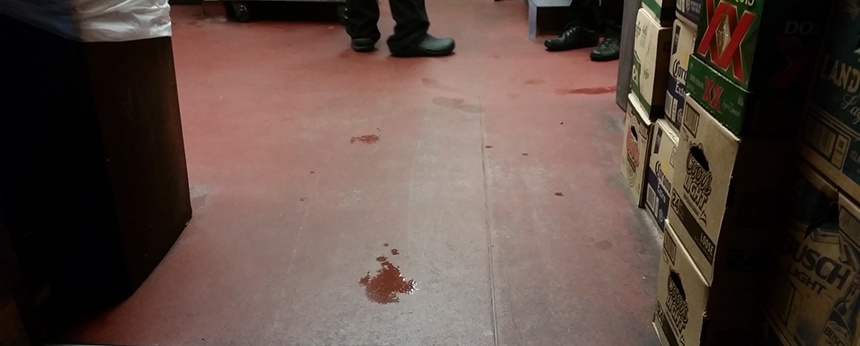
What’s the difference between concrete and epoxy flooring?
At first glance, it may seem as though there is little to choose from between the two flooring options: both can be installed over an existing concrete substrate, and aesthetically, if you choose a polished concrete surface, it can look just as good as an epoxy floor. But there are some significant and costly differences that underlie these types of floors.
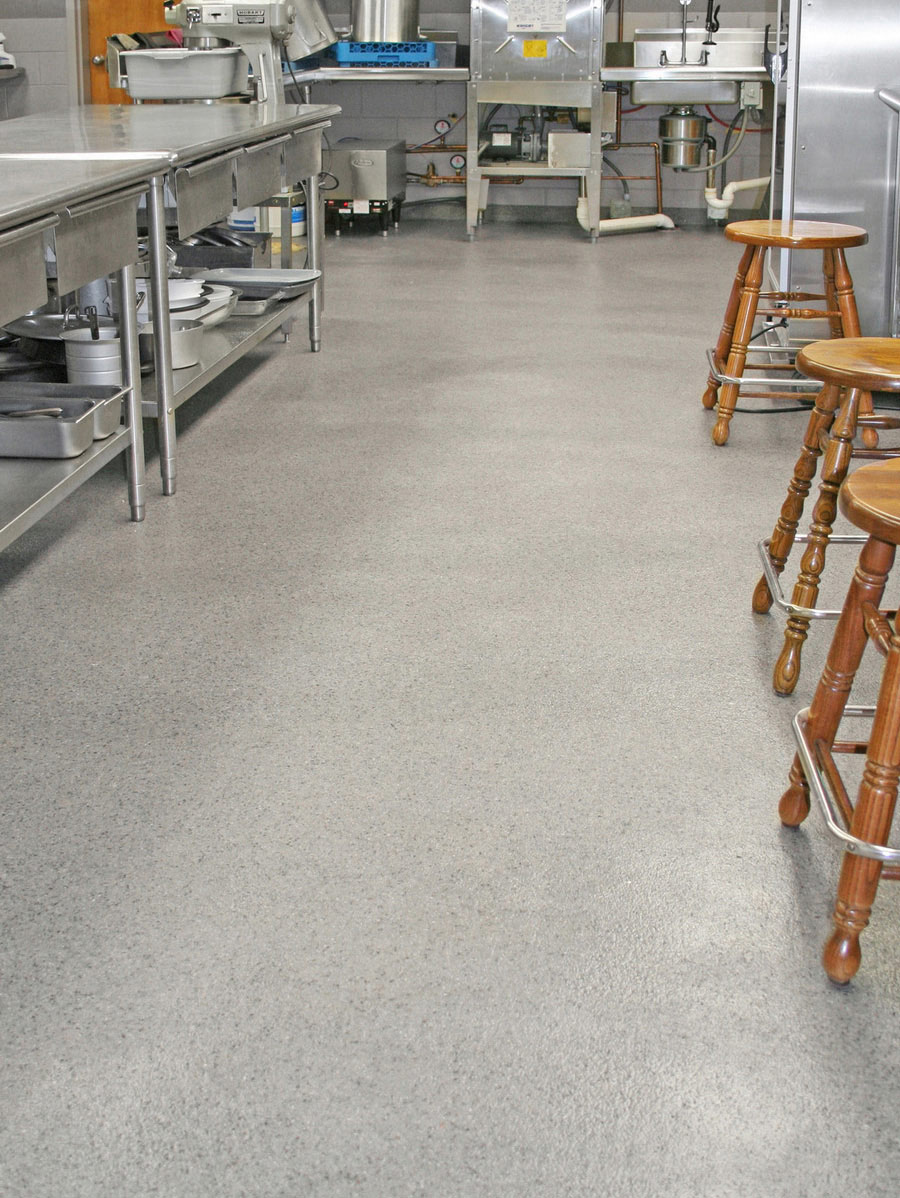
Maintaining your floor should not be a chore
One of the most important considerations for any facility manager is how easy the floor is to maintain and keep clean.
Opting for a flooring system that bears heavy labor will put additional strain on your busy janitorial staff, who are already working very hard to keep the building clean in a world that continues to battle the coronavirus pandemic.
Concrete floors can be hard to maintain and need frequent cleaning with a damp mop to keep concrete dust at bay. They also need regular buffing or polishing to keep them looking good—and every couple of years, depending on wear, a new layer of sealer will need to be reapplied. If this sounds like hard work, epoxy flooring offers an easier alternative.
Everlast® Epoxy flooring is fast to install and easy to keep clean with only detergent and water. Unlike the porous surface of a concrete floor, stains and dirt can be easily removed from an epoxy resin floor because it is nonporous, leaving it clean and stain-free.
An epoxy flooring system also removes the need to scrub, polish, or reseal the floor, which means your facility staff can use their time more productively—and your business will not have to close while essential concrete floor maintenance takes place.
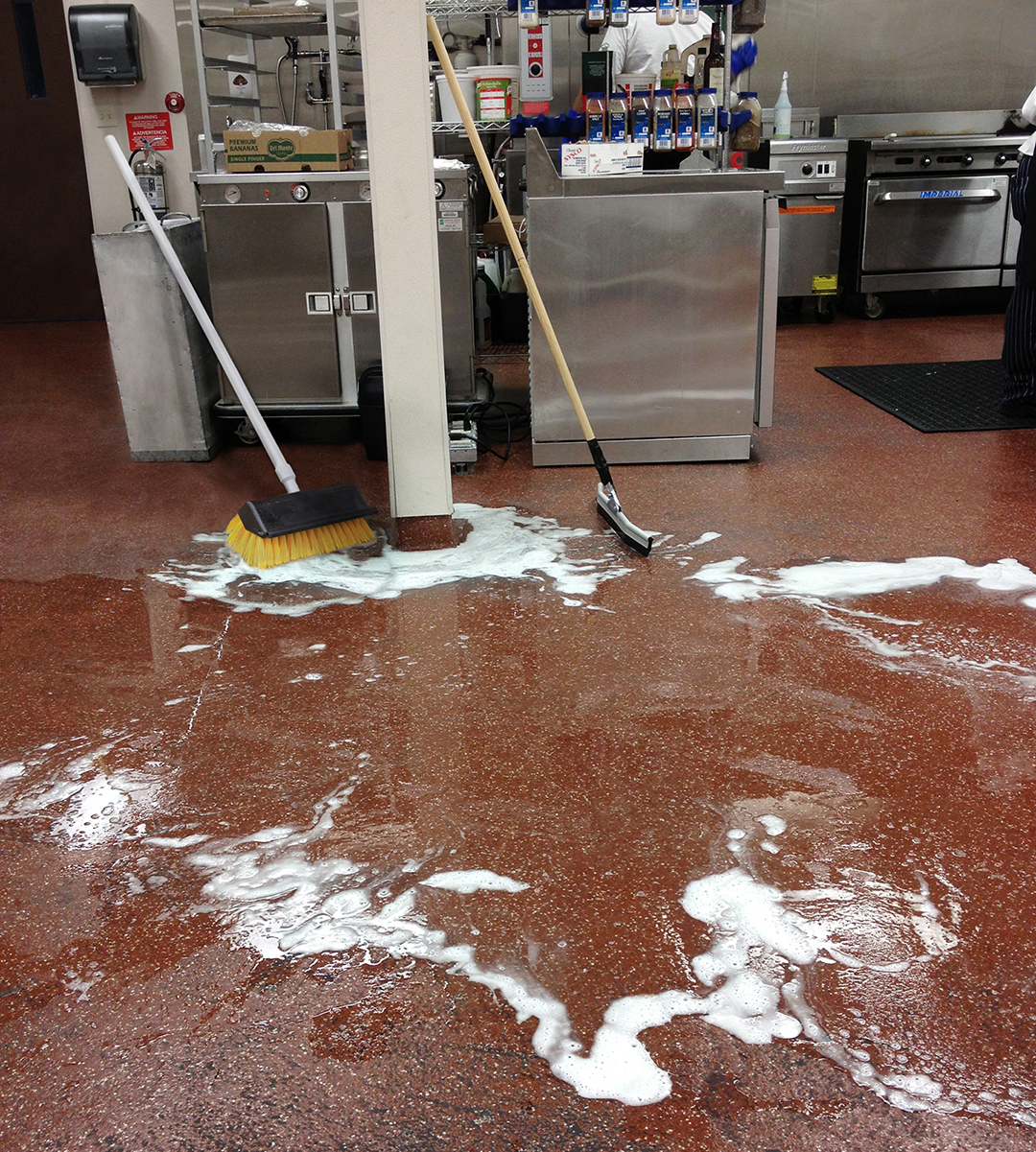
Chemical and fat resistance
We’ve seen a wide variety of flooring systems used in facilities such as commercial kitchens, medical facilities, and laboratories, in which oils, fats, or harsh chemicals are used on a daily basis.
If your facility requires a flooring system that can stand up to the rigors of grease, oil, most acids, and alkalis, or harsh detergents, an epoxy flooring system offers greater resistance to these fluids than a concrete alternative. Concrete floors cannot withstand repeated exposure to such substances and can also absorb any toxins in the chemicals, which may affect the surrounding environment.
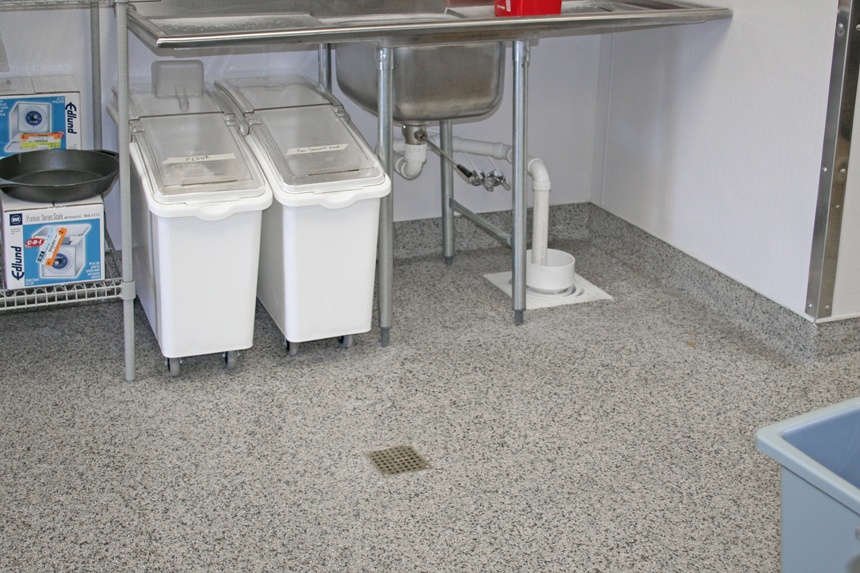
Water-resistant flooring is a must
Concrete floors can be susceptible to water damage, especially in damp environments like commercial kitchens and washrooms. Vapor transmission (which occurs when moisture within the concrete rises) can cause structural issues and an uneven surface as the concrete may bubble or become pitted.
These issues can be avoided completely when you use an epoxy flooring system. The resin can be troweled onto most existing floor surfaces to form a physical bond with the substrate, covering cracks and pitted areas for a self-containing seamless finish.
This seamless finish means that water ingression will never be an issue, and because it can bond to drains, conduits, and plumbing pipes, moisture cannot penetrate the floor and cause damage to the substrate.
A waterproof surface also means that any spills or splashes can simply be mopped away without fear of the fluids penetrating through the layers and becoming a safe harbor in which bacteria thrive.
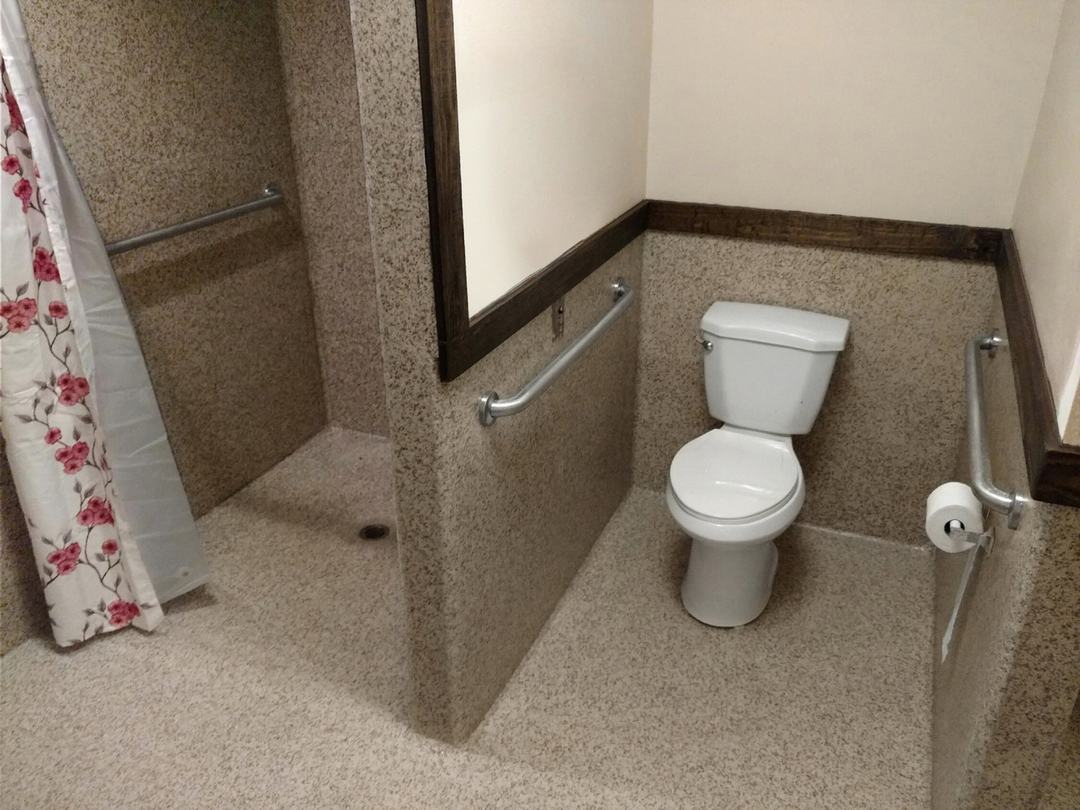
A sanitary, safe flooring system
Everlast® Epoxy flooring contains an integral EPA-registered antimicrobial component that impedes the growth of microorganisms. This protects the floor from a broad spectrum of bacteria, actinomycetes, and mildew, and it also repels objectionable odors, providing a welcoming environment for staff and visitors.
Concrete does not offer the same antimicrobial properties, and in a world with an increased focus on cleaner, safer working environments, epoxy flooring provides a healthier flooring system that prohibits the spread of bacteria.
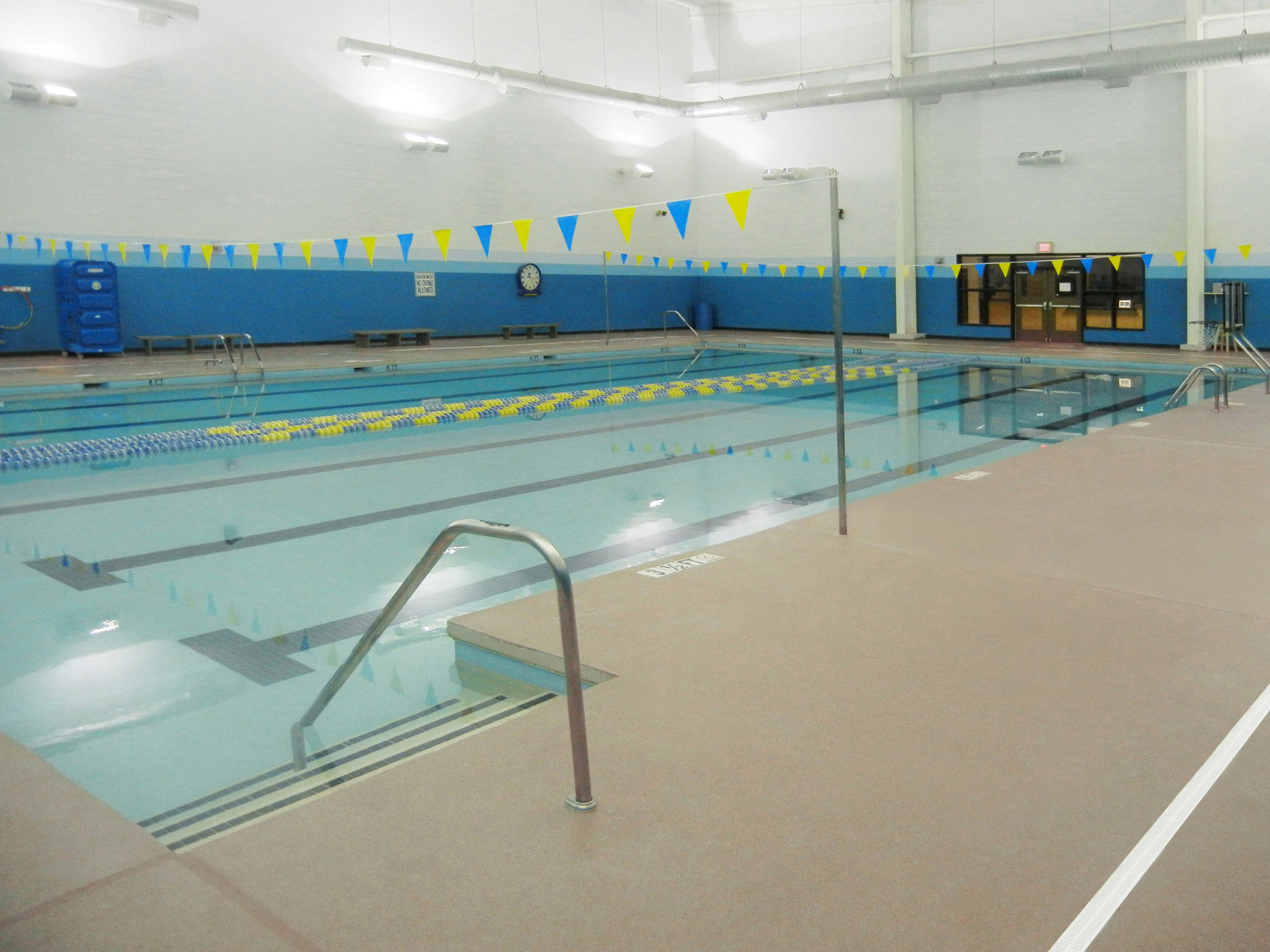
Good-looking flooring solutions that last
Epoxy flooring and polished concrete are both available in a range of attractive colors.
Although beauty may only be skin deep, the high-quality resins used in Everlast® Epoxy are 160 mm deep and can stand up to constant use and heavy foot traffic for years and still look as good as new.
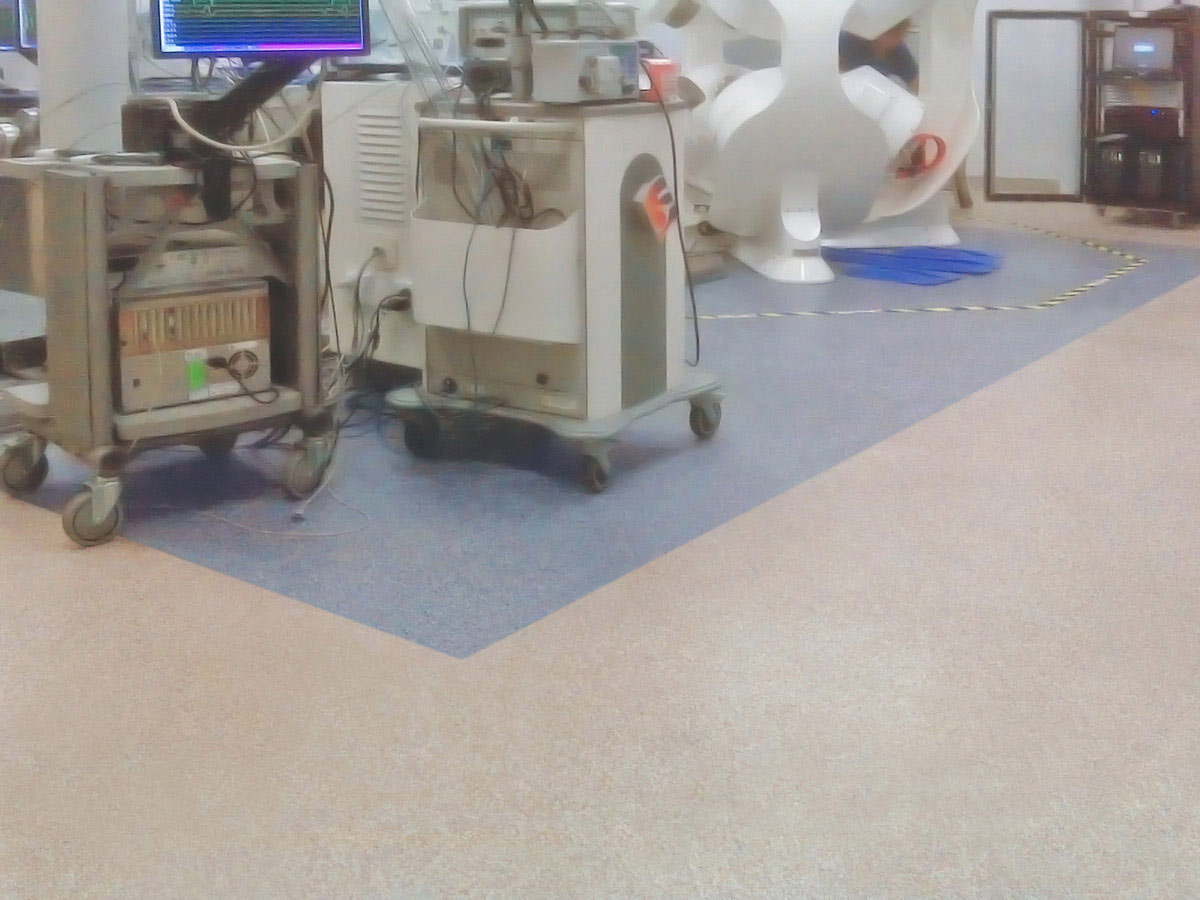
Fast installation for minimal downtime
Replacing a floor can be very time-consuming. Often, the facility will have to close while the new flooring is laid, causing disruption to the business.
Epoxy resin flooring makes the installation of a new floor fast and easy because the resin can be laid over most surfaces—no need to tear out the current floor. The floor can be walked on after a few hours—unlike a polished concrete floor, which will need 3 to 5 days to cure and cannot be exposed to heavy machines (such as forklift trucks) for 28 days.
If you are thinking about investing in a new floor, an epoxy flooring system solves all the issues that a concrete floor could cause. Contact the Everlast® Epoxy team today for free samples and a no-obligation quotation.
